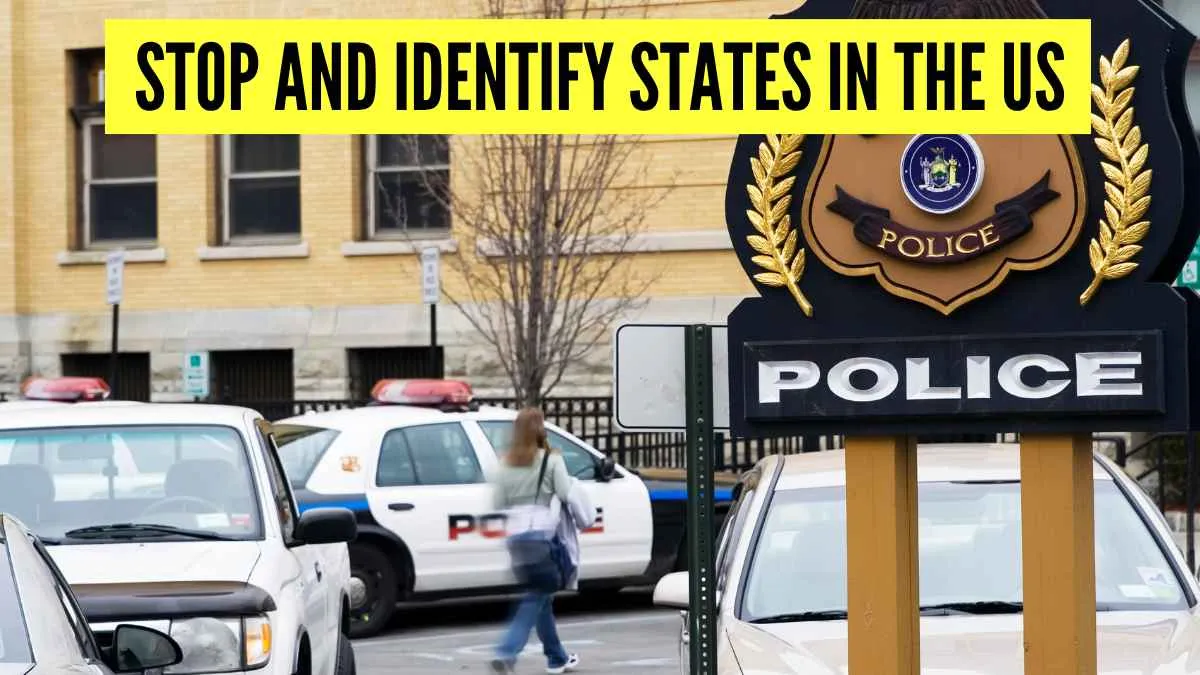In the United States, individual rights during encounters with law enforcement differ on a state-by-state basis. An important legal concept is the "stop and identify" law, which allows police officers to ask individuals to identify themselves in specific circumstances. While some states need to give you their names if it is legally detained, others do not. In these laws, civil freedom, personal privacy, and people have important implications for interacting with the police. Understanding where these laws apply and what they do is necessary for any person living or traveling across the country. According to World Population Review, these are the countries that are included under Stop and Identify Laws.
Check Out:The Great Pyramid of Giza: Check Who Built It and Other Details
What are Stop and Identify Laws?
"Stop and identify" laws are state laws that allow police officers to request a person's name, and sometimes, valid stops based on identity-doubt. These laws vary by state, but are usually applied when an official believes that a person is involved in a criminal activity. The person may be legally necessary to tell their name, and in some states, show an ID. Refusing to comply can lead to arrest or legal consequences in states where such laws are active. The validity of these laws were retained by the US Supreme Court in Hibel vs. Sixth Judicial District Court of Nevada (2004), which ruled that a person does not violate the Fourth Amendment for the need to identify himself, unless the stop is based on reasonable suspicion. However, these laws remain controversial, including racial profiling, the authority's misuse, and the balance between public safety and constitutional rights. Understanding them is important to know your rights.
| Serial Number | State | Mandatory to Identify If Lawfully Detained? |
| 1 | Alabama | Yes |
| 2 | Arizona | Yes |
| 3 | Arkansas | Yes |
| 4 | Colorado | Yes |
| 5 | Delaware | Yes |
| 6 | Florida | Yes |
| 7 | Georgia | Yes |
| 8 | Illinois | Yes |
| 9 | Indiana | Yes |
| 10 | Kansas | Yes |
| 11 | Louisiana | Yes |
| 12 | Missouri | Yes |
| 13 | Montana | Yes |
| 14 | Nebraska | Yes |
| 15 | Nevada | Yes |
| 16 | New Hampshire | Yes |
| 17 | New Mexico | Yes |
| 18 | New York | Yes |
| 19 | North Dakota | Yes |
| 20 | Ohio | Yes |
| 21 | Rhode Island | Yes |
| 22 | Utah | Yes |
| 23 | Vermont | Yes |
| 24 | Wisconsin | Yes |
Why are Stop and Identify Laws Needed?
States have "stop and identify" laws that mainly are for the help of law enforcement in preventing and investigating crime. These laws are based on the idea that if a police officer has proper suspicion that someone is involved in a criminal activity, then the person needs to identify themselves.
1. Helps in the confirmation of criminal participation or rule
2. Officers Improve Security - Identifying individuals during stops can make the police alert for potentially dangerous or armed persons.
3. Support Skilled Law Enforcement - Collecting basic identity information can streamline the investigation and allow the authorities to document it properly.
However, these laws are not blanket powers; they can only be used in situations where legal justification for stops exists. States adopting these laws generally argue that they are essential for public safety, deficiency in crime, and effective policing.
